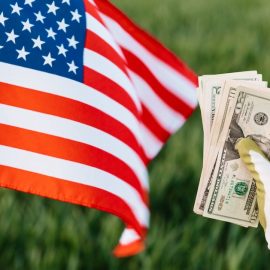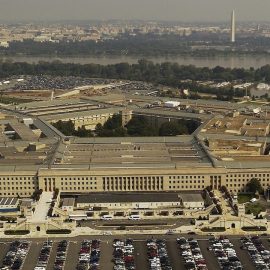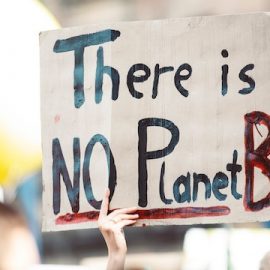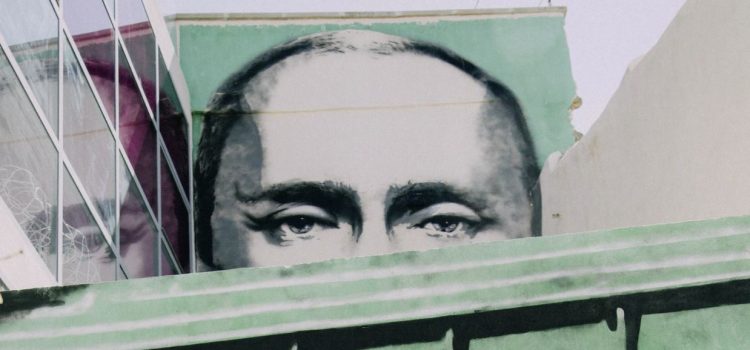
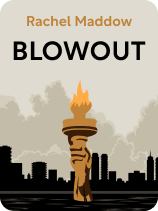
This article is an excerpt from the Shortform book guide to "Blowout" by Rachel Maddow. Shortform has the world's best summaries and analyses of books you should be reading.
Like this article? Sign up for a free trial here.
How have Russia’s oil and gas industries made the country a superpower? In what ways has Putin taken advantage of them?
In her book Blowout, Rachel Maddow claims President Vladimir Putin used Russia’s energy companies to manipulate other countries. She argues that he’s created a monopoly that relies on illegal and corrupt practices.
Keep reading to learn about Putin’s control of Russia’s energy resources.
Russia’s Energy Monopoly and Its Political Consequences
Maddow describes Russia’s oil and gas industries as some of the most corrupt in the world, with President Vladimir Putin using his position to take over private energy companies and redistribute their resources among his allies. His administration’s increased wealth and power has enabled not just Russia’s dominance of the gas industry in Europe but also, Maddow argues, its increasingly aggressive and illegal behavior in Ukraine since the 2010s.
(Shortform note: Maddow’s discussions of Russian interference in Ukraine only mention the annexation of Crimea in 2014 and subsequent war in Donbas, since the book was published in October 2019, before Russia’s February 2022 invasion. In a televised address on February 24, 2022, Putin claimed that Russia was fighting for the “demilitarization and denazification” of an increasingly “anti-Russia” Ukraine. Critics of the invasion argued that it violated both Ukrainian sovereignty and international law.)
Putin’s Monopolization of Russian Energy Production
Putin has been the primary leader of Russia since 2000, serving continuously as Prime Minister, President, or occupying both positions at once. When he was first elected, the country was still recovering from its 1998 financial crisis; his leadership is credited with stabilizing the economy, greatly reducing Russia’s foreign debt and increasing its ability to export oil and gas throughout the world. However, Maddow suggests that Putin has used his position to enrich himself and his allies, such as Igor Sechin, the former deputy prime minister and current energy mogul. Putin’s administration has been repeatedly accused of corruption and using violent tactics to silence critics—such as assassinating Russian physicist and opposition politician Boris Nemtsov in 2016.
(Shortform note: Putin’s administration has always targeted activists, the independent press, and individual journalists. Anna Politkovskaya, who reported on atrocities committed by Russia in the Second Chechen War, was assassinated in 2006. Alexei Navalny, a lawyer and anti-corruption activist, has been poisoned at least once and is currently held in prison indefinitely. Most news organizations are owned by the state, and in 2019 Russia passed the “fake news” law prohibiting the dissemination of “unreliable” or unflattering information—which is often applied to coverage of the war in Ukraine.)
According to Maddow, Putin’s goals for the Russian energy industry, once he took power, were to modernize its equipment and expand its operations as quickly as possible, using foreign investors like Morgan Stanley and ExxonMobil to finance this growth. Today, his administration asserts near-total control over oil and gas production, having slowly consolidated Russia’s equipment and reserves under two state-owned companies: Rosneft, an oil company run by Sechin, and Gazprom, a gas company that is the sole supplier for many Eastern European countries, including Ukraine.
An example of the industry’s corruption comes from Rosneft’s hostile takeover of its main competitor, Yukos, in 2003; CEO Mikhail Khodorkovsky was arrested on what are largely considered to be false charges of tax evasion and fraud, enabling the government to seize the company’s assets and sell it at auction to Rosneft, through a front company for an extremely reduced price.
(Shortform note: The rise of Russia’s oligarchs—wealthy businessmen who have influence in government and use mobster tactics—actually predates Putin, since most of these men made their wealth under President Boris Yeltsin in the 1990s. When Putin took office, he destroyed many oligarchs’ careers to reduce their power, only keeping those who were loyal to him. Aside from Mikhail Khodorkovsky, Putin also seized and nationalized the media companies of Boris Berezovsky and Vladimir Gusinsky, who eventually fled the country.)

———End of Preview———
Like what you just read? Read the rest of the world's best book summary and analysis of Rachel Maddow's "Blowout" at Shortform.
Here's what you'll find in our full Blowout summary:
- A deep dive into the corruption and exploitation in the oil and gas industry
- Examples of how the discovery of oil can weaken a country
- Possible ways to protect the world from the energy industry



